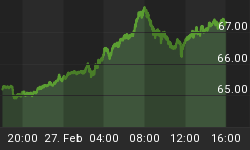The news that the Bank of England's Monetary Policy Committee (MPC) voted by just 5-4 to hike the repo rate to 5.25% earlier this month has prompted the markets to start scaling back expectations of another rate hike in March. The assumption is building that rates will peak at 5.50% this cycle, with perhaps one more rate hike in April or May. However, the narrowness of the vote should not distract from the underlying message of the MPC - inflation pressures are building faster than the Bank of England (BoE) had predicted.
The five hawks (including BoE Governor King) argued that an earlier increase was needed to help prevent the need for sharper rate hikes later in the year. They pointed to shrinking spare capacity, particularly in the all-important services sector. And, they saw a significant risk that inflation might not fall back as quickly as expected later in the year. The doves (including Chief Economist Bean) were concerned that a January rate hike could prompt excessive monetary tightening by shifting up market interest rates. However, the MPC as a whole agreed that the risks to the world economic outlook had diminished, that domestic demand was growing strongly, and that British output was growing at least at its potential rate.
In a speech yesterday Governor King reiterated the BoE's view that inflation is expected to fall later this year, perhaps sharply. On the other hand, he highlighted the upside risks to both growth and inflation. This prompted analysts to complain that the outlook for UK interest rates is unclear. Perhaps - but the data continue to point in the same direction.
Today came the news that the economy was positively robust in Q4 2006, with real GDP growth at 0.8% on the quarter and 3.0% on the year, taking growth for the year as a whole to 2.7%.

The service sector, which accounts for almost 75% of total output, rose 1.0% on the quarter. However, the manufacturing sector fell back about 0.1% from July-September levels.

In his speech yesterday, King also mentioned asset prices and inflation expectations. Last week we learned from the British Bankers' Association that underlying net mortgage lending rose £5.8 billion in December, down from the all-time record increase of £6.7 billion seen in November but still in line with the monthly average of the previous six months - and this, despite a 50bp increase in the repo rate. M4 money supply growth remained robust in December, increasing at an annual rate of 12.8%, down from the recent peak of 14.4% (seen in September) but still firmly in double digits. And, December's retail sales surprised on the upside, with the volume of sales rising a seasonally-adjusted 1.1% on the month - the fastest increase in 18 months - and 3.7% on the year.

Also last week came the British Chambers of Commerce quarterly survey. This found that the manufacturing domestic sales balance rose from +18 in Q3 to +31 in Q4 - the highest level in 12 years. The services sales balance hit a two-and-a-half year high of +34 in the fourth quarter (+24 in Q3). More to the point, price expectations in both the manufacturing and the services sector hit their highest levels in nearly a decade, with the balance of firms expecting to raise prices reaching +39 in manufacturing and +36 in services. The survey reported that firms were having to raise prices primarily to meet higher wage demands, as well as higher raw material costs.
If the data continue in this vein over the next few weeks, there will likely be another rate hike at the March 8 policy meeting, and the MPC's stance will remain hawkish until there are clear signs that a "significant drop" in inflation is imminent.















